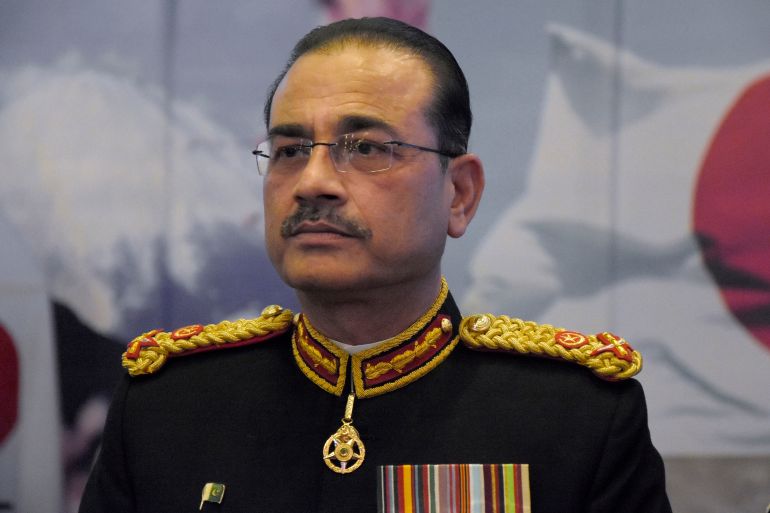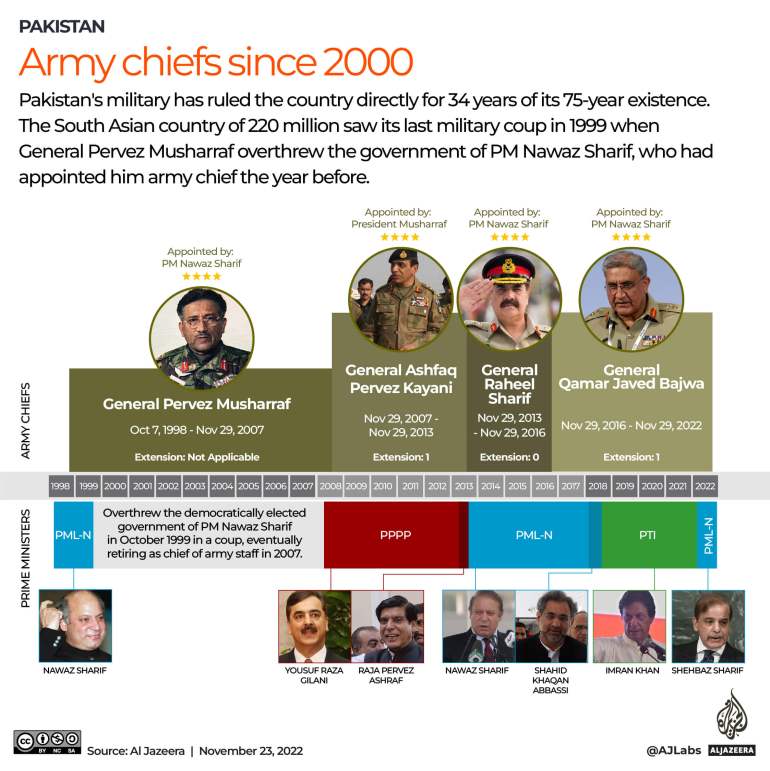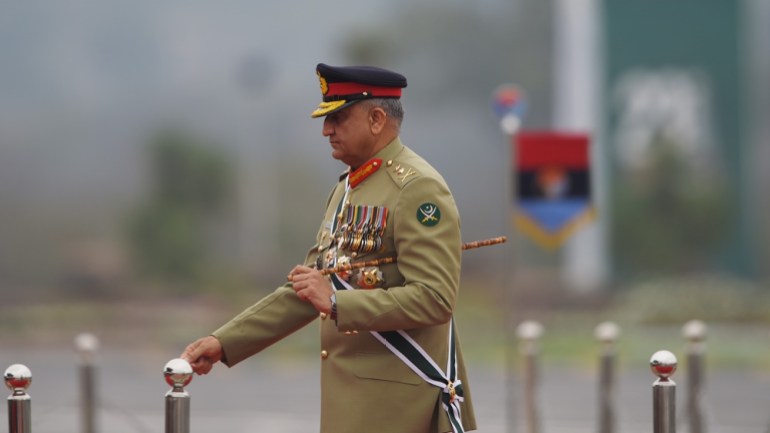Who is Asim Munir, Pakistan’s new army chief?
Lieutenant General Asim Munir will take charge of the 600,000-strong nuclear-armed army on November 29.

Islamabad, Pakistan – Pakistan’s Prime Minister Shehbaz Sharif has nominated Lieutenant General Asim Munir as the new army chief, putting an end to days of uncertainty that engulfed the nation.
Munir, whose nomination was approved by President Arif Alvi on Thursday evening, takes charge of the 600,000-strong nuclear-armed army on November 29 when incumbent General Qamar Javed Bajwa retires after a six-year stint.
Keep reading
list of 3 itemsPakistan army chief admits military’s meddling in politics
Imran Khan’s life under threat: Pakistan judge cites intel report
Lt Gen Sahir Shamshad was nominated for the post of chairman of the Joint Chiefs of Staff Committee.

‘Sword of Honour’ winner
Munir joined the Pakistani military through the Mangla Officers Training School (OTS) programme, where he won the prestigious Sword of Honour, given to the best performing cadet.
He has commanded a division which overlooks Pakistan’s northern areas, including the disputed region of Kashmir, where he worked in tandem with Bajwa, who then headed the Pakistan army’s elite X Corps.

Munir, who currently serves as the quartermaster general at the army headquarters in Rawalpindi, is considered an officer with an “impeccable reputation” within the Pakistani military.
He was made the head of Military Intelligence (MI) in 2017, the unit mandated to look after the army’s internal affairs. After his promotion as a three-star general the next year, he was given charge of the country’s premier spy agency, the Inter-Services Intelligence (ISI).
However, his eight-month stint as the head of ISI remains one of the shortest in the army’s history. Political commentators said he was removed after falling out with former Prime Minister Imran Khan.
“Given his stint as head of intelligence [ISI] was shortened by Prime Minister Khan, after both reportedly fell out, PTI [Khan’s Tehreek-e-Insaf party] believes, Munir could be tilted against them,” Muhammed Faisal Khan, an Islamabad-based security analyst, told Al Jazeera.
“The government, thus, feared that Khan through President Alvi would attempt to jeopardise the process and make the selection of Munir controversial before it could actually take effect,” he said. Alvi is a founding member of the PTI.
A military source told Al Jazeera that Munir has a “clear line of thinking” and is considered apolitical in his approach.
“He is a rare officer in the sense that he has led both the MI and the ISI. He is the first army chief who has headed both the intelligence agencies,” the source said.
“The MI experience will help him look at the army’s internal dynamics, while the ISI experience will serve him well for a global outlook in future.”
Singapore-based Pakistan analyst Abdul Basit said contrary to the reservations of Khan’s PTI party, Munir is a professional soldier who will keep the institution away from politics.
“It is a fact that the military wants to leave politics but will the politics leave the military is a question to ponder over,” he told Al Jazeera.
Munir has previously served in Saudi Arabia, one of Pakistan’s key allies, Basit added.
Munir was deputed in Saudi Arabia as part of the Pakistan army’s close defence cooperation.
“Being a familiar face in Riyadh could well be one of the factors that may have influenced his appointment for the top job,” he said.
‘Proved himself worthy’
Retired army official Muhammed Zeeshan said Munir was his senior in the military and has served on prominent operational and instructional appointments.
Zeeshan, currently the director general of the Centre for Peace, Security and Developmental Studies think-tank in Islamabad, said Munir’s career postings show he was groomed for senior positions throughout his career.
“Based on his postings and the results of his courses, it is pretty evident that he proved himself worthy of where he is today,” he told Al Jazeera.
Zeeshan said Munir served as MI head when Bajwa was the army chief and performed well.
“As the head of ISI, however, he was a bit unfortunate to be caught in an evolving political environment. But the fact that he departed in such a graceful manner when asked to leave speaks volumes about his maturity,” Zeeshan said.
On the challenges ahead for Munir, the retired brigadier said these are difficult times in the country.
“In my opinion, his biggest challenge would be to restore the trust and confidence of the nation regarding the army,” he said.